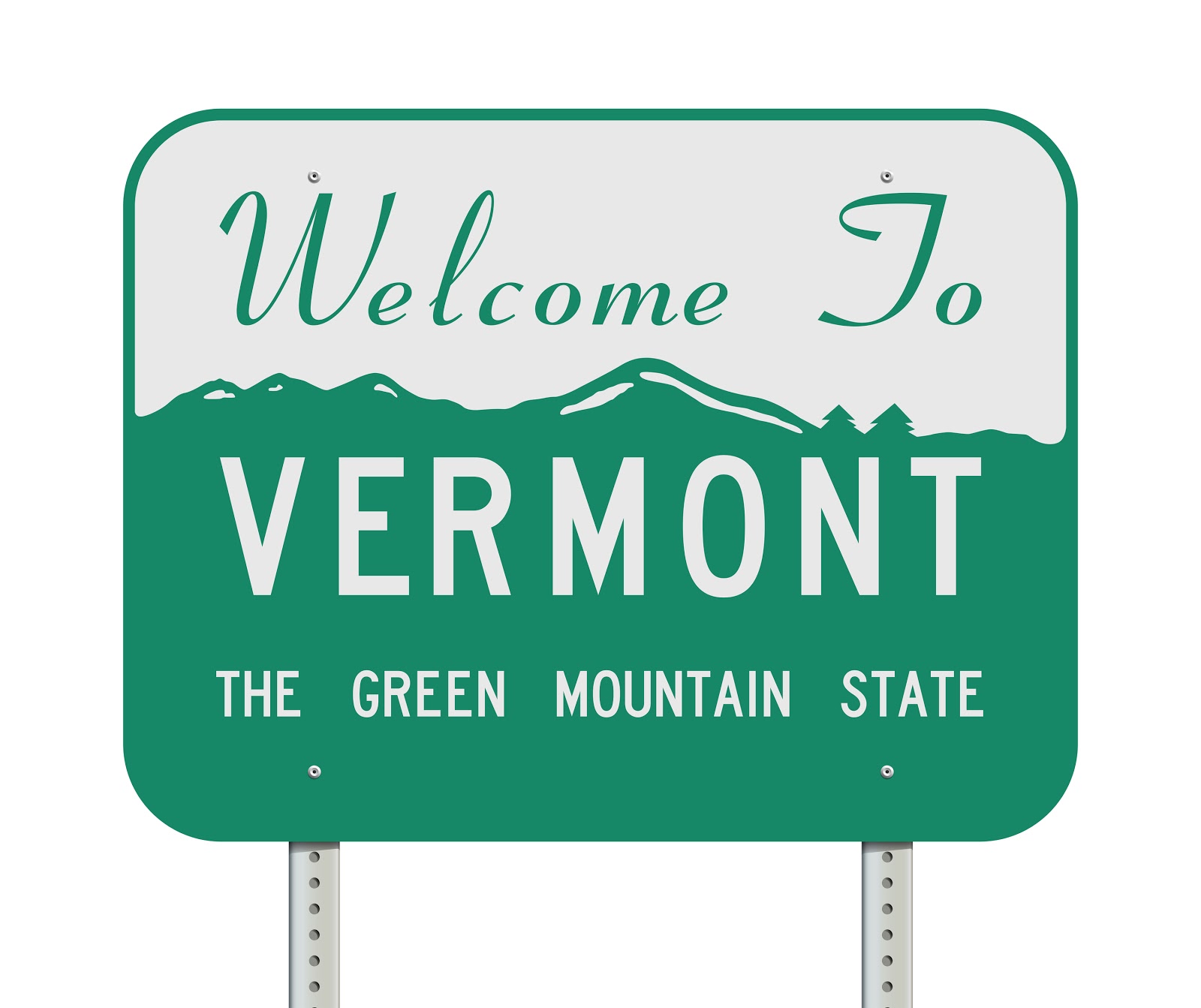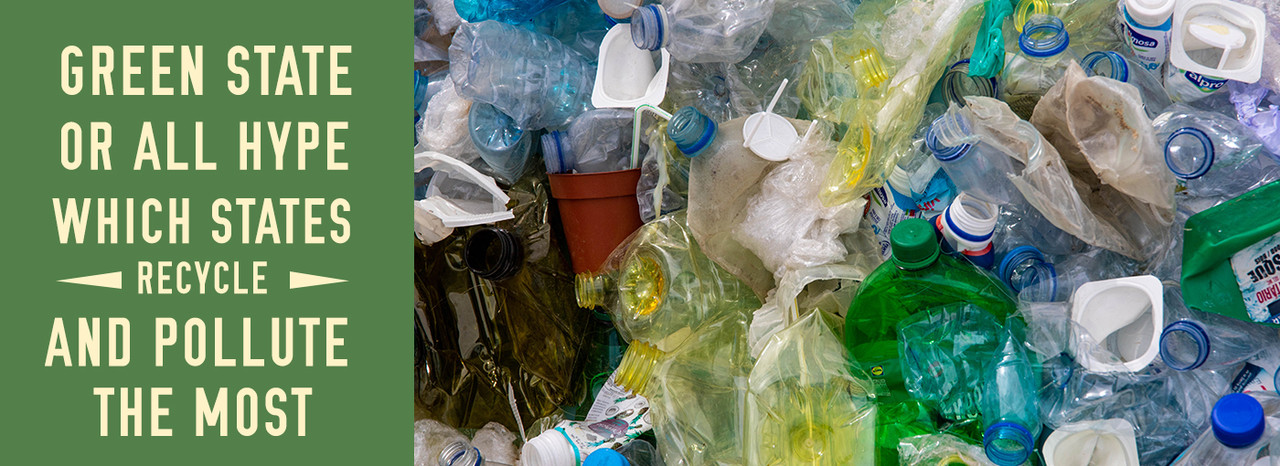Americans produce about 250 million tons of trash annually. The United States creates so much waste that in recent years one of the largest US exports to China has been actual garbage -- literal boatloads of refuse. Unfortunately, such massive waste production affects the global environment. For example, a recent study found that some storks are skipping their annual migrations altogether, instead choosing to feed and nest near landfills brimming with human food waste.
While this may be an ironic glimpse of evolution at play, it’s also a helpful case study in monitoring the evolution of public policy as states look to minimize their carbon footprint by enacting various environmental initiatives moving forward. Earlier this year, the online financial advisory website WalletHub released a report on the greenest states in the US. A range of metrics were used to determine these rankings and the company took into account everything from LEED-certified buildings per capita and percentage of renewable energy consumption to soil quality and gasoline consumption. Each of these have been boiled down to three main categories: environmental quality, eco-friendly behaviors, and climate change contributions.
Starting with the top spot, it really should come as no surprise that Vermont, The Green Mountain State, is perched comfortably at number one on this roundup of green states. Vermont was ranked number one in this regard more than a decade ago, when Forbes released it's eco-friendly US rankings in 2007. Vermont, like eco-runner-up Oregon, touts “low carbon dioxide emissions per capita (or "carbon footprints"), strong policies to promote energy efficiency and high air quality, as indicated by their major metro areas that are low in smog and ozone pollution,” per the Forbes report.
There are plenty of interesting tidbits peppered throughout the data, especially the rankings of some of the more famously environmentally progressive states. For example, while California claimed four of the top five “ greenest cities” according to a 2017 WalletHub report, the state as a whole apparently has some work to do. The Golden State ranked ninth on this list, sandwiched between eighth-place New Hampshire and Rhode Island in the number 10 spot. California recently set a rather ambitious goal aiming to achieve 100 percent clean electricity by 2045, so perhaps we’ll see the state climb the rankings in coming years.
Also, while North Dakota may be able to boast the second highest air quality score on the list (behind Wyoming), this valuable metric wasn’t able to save The Peace Garden State from coming in at number 47 in overall. The fact that North Dakotans were responsible for the highest gasoline consumption per capita probably didn’t help matters.
The methodology takes into account numerous factors and policies when determining these rankings, but the findings emphasize the value of proper waste management and recycling. Per the report, three of the highest ranking states in the study (Vermont, New Hampshire, and Rhode Island) were all ranked in the top five for lowest total municipal solid waste per capita. Similarly, four of the five states with the highest percentage of recycled municipal waste per capita were ranked in the top 11.
These two datasets illustrate just how integral proper waste management and recycling is to urban planning and environmental policy for individual cities and states alike. Especially considering the fact that “unregulated or illegal dumpsites serve about 4 billion people and hold more than 40% of the waste worldwide,” according to a report by the Los Angeles Times. “Pollution runs into rivers and seeps into groundwater. Flooding is caused by garbage clogging drains, and the atmosphere can be poisoned by the toxic discharge from trash,” per the report.
WalletHub explained its motivation for compiling the report in a release: “We should all try to do our part to save the world for future generations. In order to highlight the greenest states and call out those doing a poor job of caring for the environment.”
Fortunately, every individual can do their part to pitch in. With this in mind, Trashcans Unlimited offers the best prices on commercial and decorative trash cans and is a trusted source for all your trash can needs. The affordable lineup of Trashcans Unlimited receptacles offer trustworthy waste management and recycling for commercial, industrial, and domestic settings.
Source: WalletHub
The full rankings from worst to first:
50. West Virginia
49. Louisiana
48. Kentucky
47. North Dakota
46. Alabama
45. Wyoming
44. Oklahoma
43. Texas
42. Indiana
41. Arkansas
40. Mississippi
39. Utah
38. Kansas
37. Ohio
36. Alaska
35. Virginia
34. Florida
33. Montana
32. Nebraska
31. Iowa
30. New Mexico
29. South Carolina
28. Arizona
27. Missouri
26. Illinois
25. Pennsylvania
24. Georgia
23. Tennessee
22. North Carolina
21. Colorado
20. Michigan
19. Delaware
18. Maryland
17. Washington
16. Hawaii
15. Idaho
14. Wisconsin
13. New Jersey
12. Nevada
11. Maine
10. Rhode Island
9. California
8. New Hampshire
7. Connecticut
6. Minnesota
5. South Dakota
4. New York
3. Massachusetts
2. Oregon

1. Vermont
Where did your state wind up on this environmental roundup?

